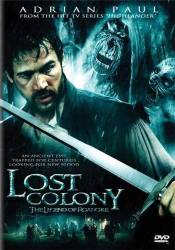
Factual error: When the wraiths first invade the stockade, one of the officers orders his men to fire their "rifles". This is the 16th century. They're firing muskets.
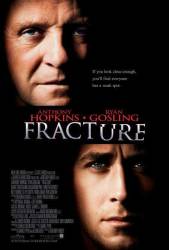
Plot hole: *SPOILER* Toward the end of the movie, Ryan Gosling goes to Hopkins' house where Hopkins is tricked into not only confessing again, but giving Gosling the murder weapon, after they are back in court and Gosling is the acting prosecutor. This would be a conflict of interest due to the fact that Gosling is a witness.
Suggested correction: First, the gun that Beachum took from Crowford's house was not the murder weapon. It was Crowford's unfired gun. He only took it out of the fear of his life. Second, Beachum entered Crowford's house with police supervision. If he plays it by the book, Crowford's confession is valid. In that case, supervising officers will stand witness, along with a recording confirming their testimony. Third, Beachum doesn't need the confession anymore. He was amply clear on that matter.
You are on point for the corrections, but they involve just mostly context/details, don't they? The text of the entry should be polished a little, but the core issue is valid, I think; Beachum would never be the acting prosecutor in a case when he is the key witness as well. If it's a case for the "murder," he has to be on the stand for practically everything; even if we exclude him from the confession to the shooting, as you suggest (and even if it should never be litigated to begin with), he still is integral to the pulling the plug phase (he was literally there as it happened and did everything to prevent it). We can just assume that he will be forced to hand the prosecuting role over to someone else later, and he was just there for 5 minutes to gloat before the movie credits run, but it's kind of funny.
Beachum doesn't have to testify, neither for the confession part nor for the "pulling of the plug." I've already covered the former. For the latter, the fact that the woman is now dead is enough. If necessary, the attending doctors could testify that the woman "would have outlived all of them."
Beachum received the confession under "police supervision," as you called it, which still involved him being the only person in the house with the defendant. You mentioned a recording in the earlier comment; are we just to assume he took one, or is there a visual hint I missed? He was also the person who fought for the court order to the point of being physically tackled in front of the victim's deathbed—so doctors and security staff defiant of such an order would be on trial too, I suppose? Since, again, this 'murder' was not even committed by Crawford. So how would Beachum not be a crucial witness, often the only witness to cover that part of the story?
OK. You want to assume Crawford's confession was for the viewer's benefit entirely, and there was no wiretapping? Fine. The police have the gun now, hence proof of the first actus reus. Hospital staff tackled Beachum, but Crawford can't pin the murder on them when he has two counts of actus reus and twice demonstrated mens rea. Courts always hear such nonsense as "I didn't kill him; I shot him. The bullet and the fall killed him" (Collateral, 2006). Shooting someone is actus reus.
I am sure you are right on the Latin, especially since it's hard to imagine the trial going the way it went the first time around to begin with, and I am not getting into the rabbit hole of what exactly could legally be relitigated. But still and again, what does this have to do with the original point being made, that some other guy would be the one leading the trial, since Beachum would be realistically called in as a witness, even a hostile one? I mean, I honestly didn't think it would be much of a point of contention; it's just something there for the audience. I followed the lead about the 'witness' part the OP ended on, but seriously, a conflict of interest would be invoked just because of all the personal first-hand, hands-on involvement in the facts.
I explicitly told you what happens if the court struck the confession from the record. (The gun happens.) And yet, here you are, saying "Beachum would be realistically called in as a witness"! This correction is turning into a confrontation. Also, don't conflate "involvement" with "conflict of interest." The latter means someone has different de facto and de jure motives. Beachum always had one motive: to convict Crawford.
Far from me to be confrontational, and sorry if I came across that way. I guess I simply don't get it; it happens. Specifically, if I stated again the point about the witness, it wasn't because I was blindly disregarding what you said (check the words immediately after the ones you quoted), but it's pointless to delve further into something that goes beyond the original mistake. You just directly addressed the meaning of conflict of interest, which was what the OP talked about. I simply felt the initial correction posted was not doing that; now it does, and I am not disputing your knowledge on the topic, especially not having any of my own. Cheers.
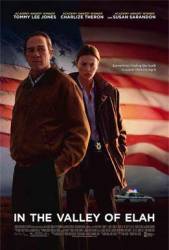
Factual error: The license plate on the blue Ford Taurus is 674-H2T. Format for New Mexico standard issue yellow plates is 123-ABC (three numbers, the Zia sun, followed by three letters).
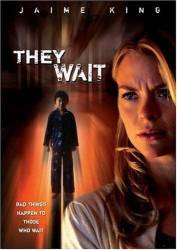
Revealing mistake: At 39:55, actress Jaime King gets out of the shower, and she has just reached for her robe, and then on the bottom right corner of your screen you can see a bit of the flesh-colored body suit she's wearing. Continue to 40:00 where you see it again. Continue to 40:05-40:09 where you can see it, without slowing or stopping frame. (00:39:55)
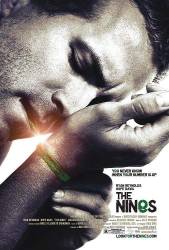
Continuity mistake: In the beginning of Part 3, Ryan Reynolds is on a deserted two-lane highway asking Hope Davis for help. She refuses to help, begins to turn and walk away down the double-yellow center lines of the road. In the next shot, we see her finishing the turn and walking on the edge of the road, by the white line (facing traffic). Immediately after, she is shown on the right side of the road, on the other white line (walking with traffic). (01:14:15)
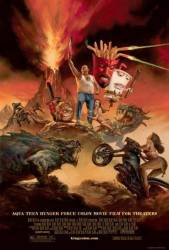
Continuity mistake: When Frylock is watching New Jersey getting destroyed by the Insane-O-Flex, look for a building to the left through the Ferris Wheel. When Meatwad transforms into a building, the fires briefly stop, then turn on again.
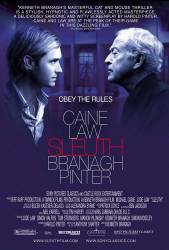
Continuity mistake: The two protagonists are having a conversation at a long table. Michael Caine sends a bottle of wine rolling across the table. Jude Law opens it and pours. The bottle label now faces him. After Caine says the line "I've never heard of an Italian called Tindale", Milo hasn't moved but the bottle faces the camera now. There's another subtle change in angle and level of the liquid a bit later when Caine says that his wife would get the "Tindelini" last name. (00:09:20)
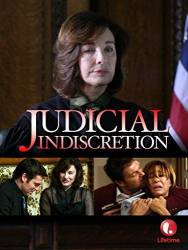
Other mistake: The film's set in Seattle but was filmed in Canada. This is evidenced by things like a Canadian red striped postal box as well as cars with Canadian license plates.